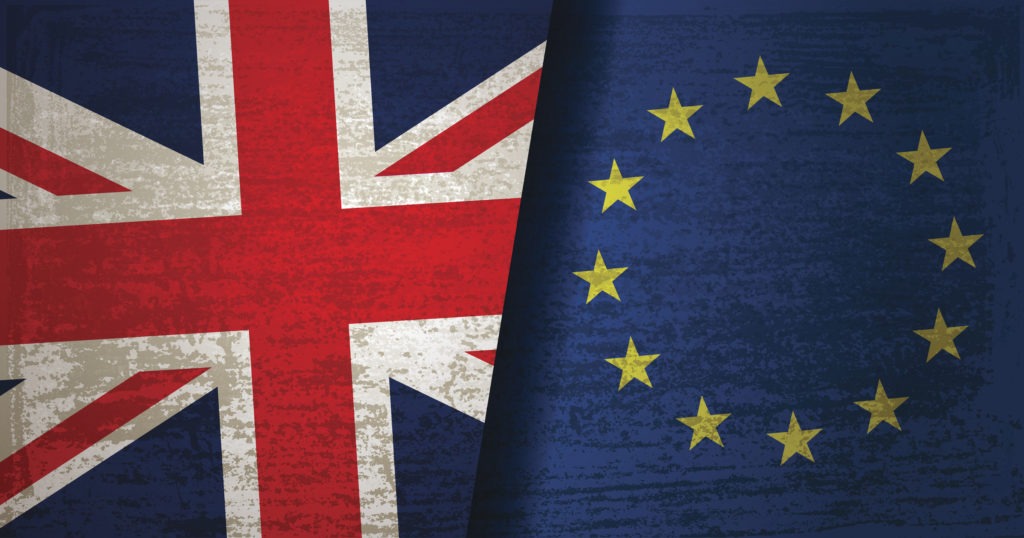Automotive relief at Brexit deal
04 January 2021

4 January 2021
Following a year of unprecedented difficulties, the European Union and the UK reached an agreement on Christmas Eve for a Brexit deal.
′It was a long and winding road. But we have got a good deal to show for it,’ said European Commission president Ursula von der Leyen. ′It is fair and balanced. And it is the right and responsible thing to do for both sides.’
Confirming the long-awaited agreement, UK Prime Minister Boris Johnson estimated the free-trade deal to be worth approximately £660 billion (€735 billion). He described it as a ′comprehensive Canada-style free-trade deal,’ which means UK goods can be sold without tariffs and quotas in the EU.
WATCH LIVE: My update on our future partnership with the European Union. https://t.co/cTd8qWRbrn
″” Boris Johnson (@BorisJohnson) December 24, 2020
As the UK now no longer follows the EU’s rules on production standards, checks on goods have been introduced. This, in turn, creates more paperwork and red tape, which may result in delays if goods arrive at ports unprepared. However, the deal does include a 12-month grace period on some elements of the ′rules of origin’ declarations, which require exporters to certify goods qualify as locally sourced, allowing them to avoid tariffs. Businesses will have a year to obtain supporting documents form third-party suppliers, giving some companies more time to adapt.
But how has this last minute, 1,246-page Christmas present been received by the automotive sector?
The automotive reaction
The European Automobile Manufacturers’ Association (ACEA) welcomed the deal and the relief it brought as the sector avoids the harsh consequences of a no-deal Brexit. ACEA director-general Eric-Mark Huitema explained that no other industry is more closely integrated than the European automotive sector, which depends upon complex supply chains that stretch across the region.
′The impact of a no-deal Brexit on the EU auto industry would have been simply devastating, so we are first and foremost extremely relieved that an agreement was reached before the transition period expired,’ Huitema said. ′Nonetheless, major challenges still lie ahead, as trade in goods will be heavily impacted by barriers to trade in the form of new customs procedures that will be introduced on 1 January 2021.’
ACEA pointed out that compared to when the UK was aligned with the EU, the deal struck by negotiators has introduced much more red tape and regulatory burden. According to ACEA, before Brexit, almost 3 million vehicles worth €54 billion were traded annually between the EU and the UK, and cross-Channel trade in automotive parts accounted for nearly €14 billion.
Phase-in period
In the UK, the Society of Motor Manufacturers and Traders (SMMT) also welcomed news of the agreement as a platform for a future relationship between the EU and UK. It also identified the need for a ′phase-in period,’ which it stated would be critical to help business on both sides adapt.
′The tariff-free, quota-free trade industry has called for has been secured in principle. However, the six-year phase-in period and special provisions for electrified vehicles and batteries now make it imperative that the UK secures at pace investment in battery gigafactories and electrified supply chains to create the world-leading battery production infrastructure to maintain our international competitiveness,’ said Mike Hawes, SMMT chief executive.
The SMMT went on to call for the immediate ratification and implementation of the agreement. Members of Parliament in the UK did go on to vote overwhelmingly to back the deal, with the House of Lords also passing the bill off for Royal Assent.
The EU has also identified the need to get the agreement ratified as a matter of ′special urgency,’ even though it was unable to do so before the UK left the single market. Given the late hour, the Commission proposed to apply the details on a provisional basis for a limited time period until 28 February 2021. The deal was also given unanimous backing by ambassadors from the 27 nations, with written approval from member states.
Now the UK can look to future partnerships with countries like Turkey, with which it recently signed a deal for preferential trading terms. New relationships like these will be essential as the country’s partnership with the EU trading bloc becomes more complex, and it navigates the terms of the deal.
′Further ahead, we must pursue the wider trade opportunities that Brexit is supposed to deliver while accelerating the UK’s transition to electrified-vehicle manufacturing. With the deal in place, government must double down on its commitment to a green industrial revolution, create an investment climate that delivers battery-gigafactory capacity in the UK, supports supply-chain transition and maintains free-flowing trade – all essential to the UK Automotive sector’s future success,’ said Hawes.